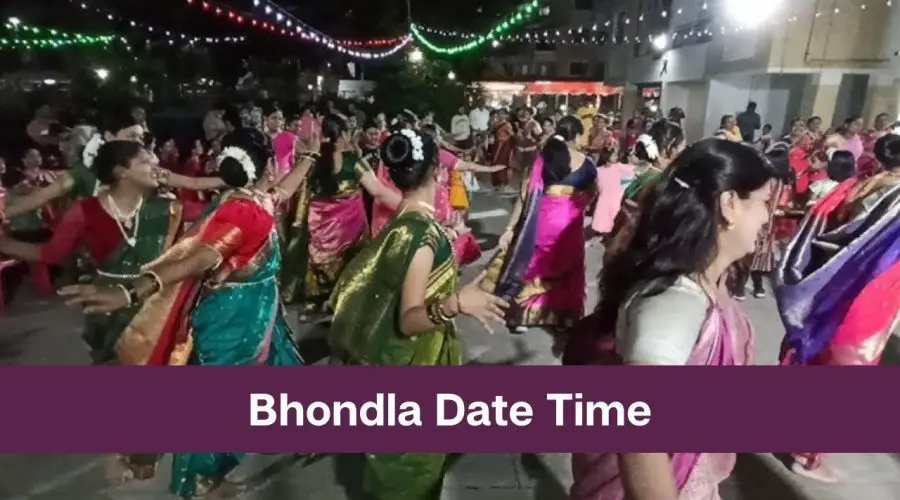Bhondla 2023 Date: Know Everything About This Festival
Bhondla is an exceptional Maharashtra performance festival. The term ‘Bhondla’ can be derived from the Sanskrit word ‘bahu-tandula’, which signifies ‘abundance of rice’; this is due to the fact that the festival takes place in the Konkan region of Maharashtra, where rice paddy is the primary crop, and the festival aligns with the harvesting of paddy. The dates for Bhondla 2023 are November 13 through November 27.
A second possible origin of the term is the word “bhovandal,” which translates to “circling movement,” as this is precisely how the girls perform their performance. Occasionally, it is alternatively referred to as “hadgyacha bhondla,” with the name originating from the sun’s progression through the Hasta constellation. Commencing on the day of the new moon in the month of Ashwin (October-November), the sixteen-day festival lasts.
Rangoli (vibrant designs) are crafted by maidens onto a wooden platform, featuring an effigy of two elephants positioned in a facing manner with their trunks elevated. They dance around the stump of a tree (known locally as hadga) firmly rooted in the earth while holding hands. They perform bhondla songs in Konkan and Bhulabai’s songs in other regions of Maharashtra while going in circuits. Each day, the quantity of tracks escalates, commencing with one on the inaugural day and culminating in sixteen on the final day.
Daily, Bhondla is performed in a distinct residence. Snacks, which are rotated daily, are provided to the females prior to their dispersal.
Certain songs are haphazard assemblages comprised of scattered lines from forgotten songs from the distant past that are linked by unidentified events and held together by their rhythmic correspondence.
Although the festival has ceased to exist in urban regions, it continues to fascinate rural adolescent females.
Bhondla initially intended to offer consolation to young women who were prematurely wedded, but that line of thinking is no longer valid. As members of a more recent generation of Maharashtrians, we might be able to relate it to our current circumstances.

